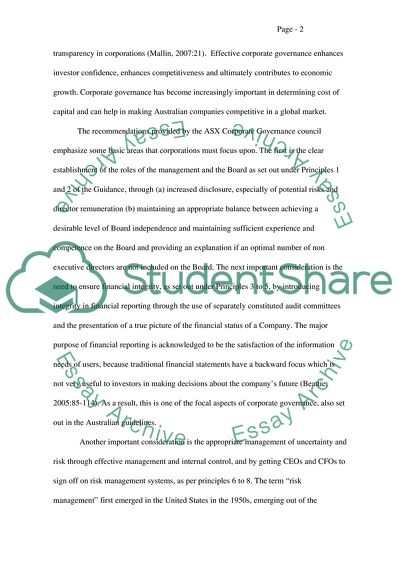Cite this document
(Corporate Governance in Australia: the Centrebet Company and the CI Case Study, n.d.)
Corporate Governance in Australia: the Centrebet Company and the CI Case Study. https://studentshare.org/finance-accounting/1716958-accounting-topic-corporate-governance-in-australia
Corporate Governance in Australia: the Centrebet Company and the CI Case Study. https://studentshare.org/finance-accounting/1716958-accounting-topic-corporate-governance-in-australia
(Corporate Governance in Australia: The Centrebet Company and the CI Case Study)
Corporate Governance in Australia: The Centrebet Company and the CI Case Study. https://studentshare.org/finance-accounting/1716958-accounting-topic-corporate-governance-in-australia.
Corporate Governance in Australia: The Centrebet Company and the CI Case Study. https://studentshare.org/finance-accounting/1716958-accounting-topic-corporate-governance-in-australia.
“Corporate Governance in Australia: The Centrebet Company and the CI Case Study”. https://studentshare.org/finance-accounting/1716958-accounting-topic-corporate-governance-in-australia.


